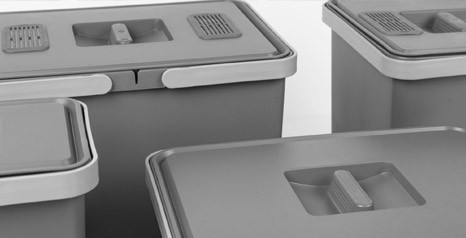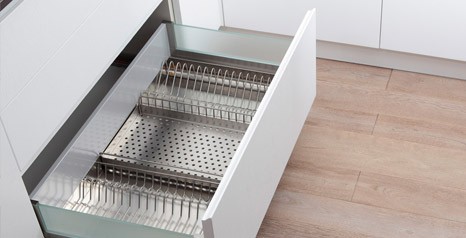- toc Kitchen organization
- favorite 70 likes
- remove_red_eye 3717 views

Do you know those kitchen odors that instantly have you holding your nose and breath? They can include raw food and cooking smell given off by vegetables such as onions, cabbage, and broccoli or food waste such as raw fish, rotten chicken, and days-old takeout–the culprits are practically endless.
Unless addressed quickly, kitchen odors can stink up your home in a big way!
So, why do some cooked vegetables smell?
While doctors and nutritionists push vegetables for their powerful disease-fighting properties, these same experts don't mention how obnoxious the odor is some give off.
That smell? The sulforaphane compound in some cruciferous vegetable molecules. The sulfur odor indicates a vegetable possesses excellent health properties. Cruciferous (fibrous) veggies include kale, broccoli, cauliflower, cabbage, and many others.
How to combat raw and cooked food orders
So while they may be unpleasant to the nose, you can help dissipate the odor with a few different tricks.
- Add small pinches of bread to the water before basket steaming. The bread absorbs the odors.
- Don't boil vegetables directly in water–use a steamer basket set above the water line.
- Don't overcook the vegetables as this will increase the sulfuric acid and odor.
- Blanche, steam, roast, and stir-fry vegetables for short periods only without overcooking.
- Make sure to leave leftovers out until completely cooled or they will stink up the fridge and omit a fouler odor upon opening.
So, why does rotting food smell so bad?
To combat kitchen waste-related odors, we must understand why they are so offensive.
To find out why we look to the experts.
Benjamin Wolfe is an assistant biology professor at Tufts, a world-class research university. In his article on TuftsNow.com, "Why does rotten food smell bad?" Wolfe points the finger at microbes; he says, "When food goes bad and starts to become pungent, it is most often due to the growth of spoilage microbes such as bacteria, yeasts, and mold.
Odors can come from two sources: chemicals released from the food as the microbes decompose or chemicals produced directly by the microbes. Spoilage odors come in many flavors, depending on the type of spoilage microbe and the food being spoiled."
Those pesky little microbes get to work immediately, meaning the morning's breakfast scraps in the sink or trash can breed bacteria and attract pests while you're at work.
Who wants to walk into a wall of stink every evening?
How to combat food waste odors
Now you understand why and how food waste gets its foul odor, you can start controlling it with a few tricks.
- Scented trash bags and pull out trash cans will mask odors somewhat but not if you don't take out the trash daily (even if it's not full.)
- Lemons make a wonderful odor-neutralizer. Make lemon steam by boiling lemons on the stovetop. Pulverize a quartered lemon in the disposal.
- How can I absorb food smells in my house? Leave a bowl of baking soda out–it will absorb odors.
- Open your windows wide and turn on the fan in your range hood.
- Burn candles or use plugin scent warmers. Simmer potpourri on your stovetop or boil fresh oranges, nutmeg, and water.
Keep the stink at bay with the above odor controllers and Elletipi's line of heavy-duty pull out trash cans. They're entirely made in Italy and come in sizes to fit within your cabinets. Shop pull out trash cans on Elletipi today!



